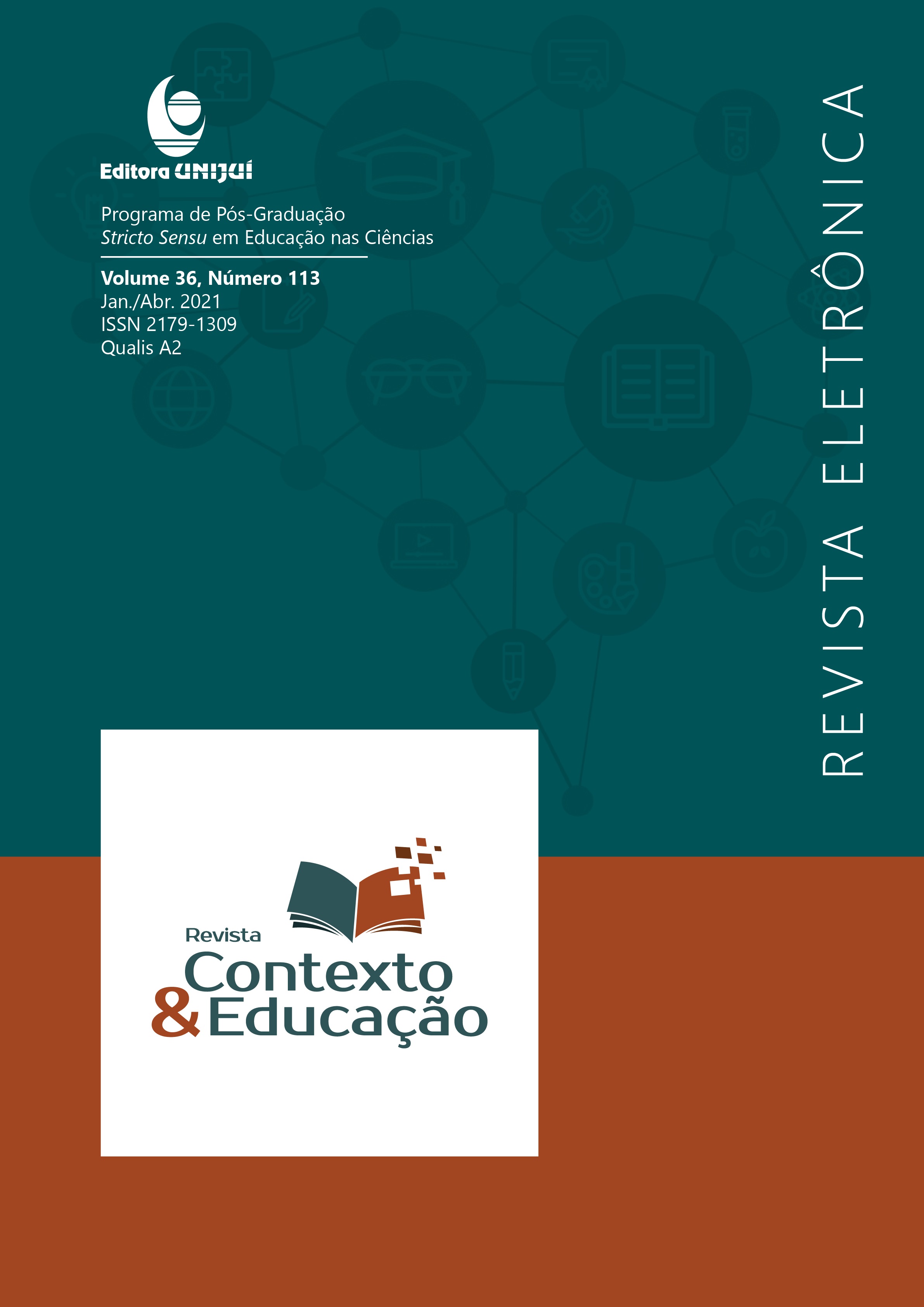TRABALHO, PERFIL DOCENTE E CURRÍCULO: A FORMAÇÃO PROFISSIONAL INCONCLUSA NO ENSINO MÉDIO INTEGRADO DO IFPR
DOI:
https://doi.org/10.21527/2179-1309.2021.113.392-412Palavras-chave:
Formação docente., Ensino Médio Integrado., Currículo Técnico/Profissional., Omnilateralidade.Resumo
Este artigo fundamentou-se nas análises desenvolvidas pelo Grupo de Pesquisa CNPq “Economia do Trabalho, Educação e Desenvolvimento Regional”, bem como dos resultados parciais de pesquisas realizadas junto ao Programa de Pós-Graduação em Ensino: Formação Docente Interdisciplinar da Universidade Estadual do Paraná. Realizou-se um recorte em que foram analisadas as incongruências formativas no Ensino Médio Integrado oferecido pelo Instituto Federal do Paraná (IFPR). Por meio de uma pesquisa qualitativa ancorada em análises bibliográficas e em fontes documentais, identificaram-se o perfil profissional docente do professor atuante no IFPR bem como a concepção de Ensino Profissional proposta nos Projetos Pedagógicos dos cursos das modalidades analisadas, cursos ofertados na mesorregião metropolitana de Curitiba, mais precisamente nos campi de Campo Largo, Curitiba e Pinhais. Os resultados alcançados revelaram que os cursos pesquisados têm sua ênfase centrada na formação para o mercado de trabalho, ainda que o Ensino Médio Integrado seja a última etapa da Educação Básica, portanto de caráter formativo. A prevalência da concepção formativa técnica unilateral implica que as aulas são ministradas, exceção à regra, por professores bacharéis, com reduzida carga horária das disciplinas de Ciências Humanas e Sociais no eixo Formação Técnica e Profissional.
Downloads
Publicado
Como Citar
Edição
Seção
Licença
Ao publicar na Revista Contexto & Educação, os autores concordam com os seguintes termos:
Os trabalhos seguem a licença Creative Commons Atribuição 4.0 Internacional (CC BY 4.0), que permite:
Compartilhar — copiar e redistribuir o material em qualquer meio ou formato;
Adaptar — remixar, transformar e criar a partir do material para qualquer fim, inclusive comercial.
Essas permissões são irrevogáveis, desde que respeitados os seguintes termos:
Atribuição — os autores devem ser devidamente creditados, com link para a licença e indicação de eventuais alterações realizadas.
Sem restrições adicionais — não podem ser aplicadas condições legais ou tecnológicas que restrinjam o uso permitido pela licença.
Avisos:
A licença não se aplica a elementos em domínio público ou cobertos por exceções legais.
A licença não garante todos os direitos necessários para usos específicos (ex.: direitos de imagem, privacidade ou morais).
A revista não se responsabiliza pelas opiniões expressas nos artigos, que são de exclusiva responsabilidade dos autores. O Editor, com o apoio do Comitê Editorial, reserva-se o direito de sugerir ou solicitar modificações quando necessário.
Somente serão aceitos artigos científicos originais, com resultados de pesquisas de interesse que não tenham sido publicados nem submetidos simultaneamente a outro periódico com o mesmo objetivo.
A menção a marcas comerciais ou produtos específicos destina-se apenas à identificação, sem qualquer vínculo promocional por parte dos autores ou da revista.
Contrato de Licença (para artigos publicados a partir de outubro/2025): Os autores mantém os direitos autorais sobre seu artigo, e concedem a Revista Contexto & Educação o direito de primeira publicação.


